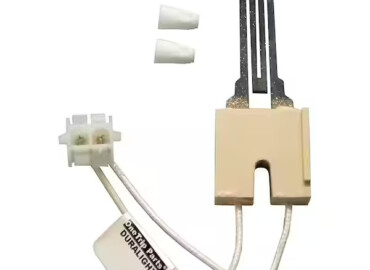Can Air Conditioning Give You Headaches?
Air conditioning is a welcome relief during hot summer months, providing cool and comfortable indoor environments. However, did you know that your air conditioner could be the culprit behind those throbbing headaches? In this comprehensive guide, we will explore the potential causes of headaches related to air conditioning and provide actionable steps to alleviate them. Whether it’s dehydration, cold air, mold, or allergens, we’ll shed light on how your air conditioner can impact your well-being.
The Causes of Headaches Related to Air Conditioning
There are several factors that can contribute to headaches when using air conditioning. One primary cause is the sudden change in temperature. When we move from a hot and humid environment to an air-conditioned room, our body needs time to adjust. This rapid change in temperature can cause blood vessels in the head to constrict, leading to a headache.
Another factor is the quality of the air being circulated by the air conditioning system. If the air filters are not regularly cleaned or replaced, dust, allergens, and other pollutants can accumulate and be recirculated, causing irritation and triggering headaches in individuals who are sensitive to these substances.
Additionally, the constant noise and vibrations produced by the air conditioning unit can also contribute to headaches, especially in individuals who are particularly sensitive to sound.
1. Dehydration: The Hidden Culprit
Your air conditioner not only cools the air but also acts as a dehumidifier, reducing the humidity levels indoors. While this is beneficial for comfort, excessive reduction in humidity can lead to dehydration, which in turn can trigger headaches. Even mild dehydration can cause headaches, so it’s crucial to stay hydrated, especially when you’re spending extended periods in a cool environment.
How to Stay Hydrated
- Drink plenty of water throughout the day, even when indoors.
- Consider installing a humidifier that works in conjunction with your HVAC system to maintain an optimal humidity level in your home.
2. Cold Air and Blood Vessel Constriction
Keeping your home too cool can cause the blood vessels in your head to constrict, resulting in headaches. Most home cooling modes are set between 69-72 degrees Fahrenheit, but if you have your thermostat set much lower than this, it may be worth adjusting the temperature to provide relief for your head.
Tips to Avoid Cold Air Headaches
- Increase the temperature on your thermostat by a few degrees and monitor if it alleviates your headache symptoms.
- Ensure your home is adequately insulated to maintain a comfortable temperature without overworking your air conditioner.
3. Mold and Headache Triggers
Mold is a well-known headache trigger, and your HVAC system can be a breeding ground for mold growth, particularly during the summer months. The damp and cool conditions of your evaporator coil create the perfect environment for mold to thrive. While the condensation mostly drains out through a condensate drain, the coil can remain damp when the air conditioner is running.
Combating Mold Growth
- Schedule regular maintenance for your HVAC system to detect and prevent mold growth.
- Consider installing a UV germicidal lamp that uses ultraviolet light to eliminate bacteria and viruses, including mold spores.
4. Allergens and Air Quality
Air conditioners not only circulate air but also distribute particles like dust, pollen, and allergens. If your filters are dirty, ducts are contaminated, or your air conditioner is faulty, these allergens can exacerbate headaches. Allergies are a common cause of headache symptoms, and the presence of allergens in the air can trigger migraines for susceptible individuals.
Strategies for Improved Air Quality
- Change your air filters regularly to reduce the presence of allergens in your home.
- Schedule professional duct cleaning to remove accumulated dust and contaminants from your HVAC system.
- Consider using hypoallergenic filters to trap allergens more effectively.
- Invest in regular HVAC maintenance to ensure optimal air quality and minimize the impact of allergens.
5. Additional Factors to Consider
- While air conditioning headaches are often associated with the factors mentioned above, it’s essential to consider other possibilities that may contribute to your discomfort. These factors include:
Sleep Disruption
- Cold air from an air conditioner can disrupt your sleep, leading to fatigue and headaches. Ensure that your bedroom temperature is set at a comfortable level for uninterrupted rest.
Eye Strain
- Spending excessive time in air-conditioned environments can cause eye strain, resulting in headaches. Take regular breaks, practice eye exercises, and ensure proper lighting in your workspace to minimize eye strain.
Stress and Tension
- Stress and tension are common triggers for headaches. While air conditioning may not directly cause stress, it can indirectly contribute to it if the temperature and comfort levels are not adequately balanced. Maintaining a comfortable environment can help alleviate stress-related headaches.
Tips for Preventing Headaches Caused by Air Conditioning
Fortunately, there are steps you can take to prevent headaches caused by air conditioning. First and foremost, it is essential to maintain a consistent temperature. Avoid setting the air conditioner to extremely cold temperatures, as this can shock your system and increase the likelihood of developing a headache. Instead, aim for a comfortable and gradual decrease in temperature.
Regular maintenance of your air conditioning system is also crucial. Clean or replace the air filters regularly to ensure that the air being circulated is free from dust and allergens. Additionally, consider using a humidifier in the room to prevent the air from becoming too dry, which can also contribute to headaches.
Taking breaks from the air-conditioned environment can also be beneficial. Step outside periodically to allow your body to adjust to the temperature changes gradually. Engaging in relaxation techniques such as deep breathing exercises or stretching can help alleviate muscle tension and reduce the likelihood of developing a headache.
Conclusion
Air conditioning can bring relief during hot weather, but it’s essential to be aware of potential triggers that can lead to headaches. Dehydration, cold air, mold growth, allergens, and other factors can all contribute to headache symptoms. By staying hydrated, adjusting temperature settings, maintaining air quality, and addressing other contributing factors, you can minimize the risk of air conditioning-related headaches. If you experience persistent headaches, it’s advisable to consult a healthcare professional to rule out any underlying medical conditions. Remember, a comfortable and headache-free environment is within your reach with proper care and maintenance of your air conditioning system.




